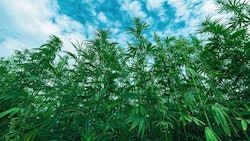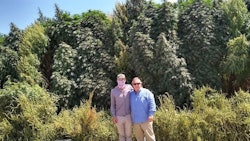
A smokable hemp ban in Texas has been placed on temporary hold until a lawsuit over its legality goes to trial in February.
On Sep. 18, Texas district court Judge Lora J. Livingston ruled that she would temporarily prevent the state from enforcing its ban on smokable hemp after several companies filed a lawsuit, Crown Distributing LLC, et al. v. Texas Department of State Health Services, et al., in August to challenge the policy. (Those companies are Crown Distributing LLC, America Juice Co. LLC, Custom Botanical Dispensary LLC and 1937 Apothecary LLC.)
The temporary injunction recently issued by Livingston is a continuation of a previous temporary restraining order that went into effect in late August as the battle over the state law continues on.
In their petition against the state, the companies’ argument is two-fold. First, they claim that the state’s overarching ban on smokable hemp is unconstitutional.
“If allowed to move forward, these bans on smokable hemp products will shutter businesses across the state, resulting in a loss of jobs and tax revenue. They impede the economic liberty of Texas businesses, pose an existential threat to Texas hemp manufacturers, farmers, and retailers, and are sure to stifle growth of a budding Texas industry,” the companies state in their lawsuit. “Texas has sent a clear message to other companies in the industry: take your business and jobs elsewhere.”
The second half of their argument pertains to the ban taken a step further when the Texas Department of State Health Services (DSHS) launched its Consumable Hemp Program, which went into effect Aug. 2.
While the law that regulates hemp production in the state (H.B. 1325) prohibited the manufacturing and processing of smokable hemp, the DSHS proceeded to also prohibit the sale of smokable hemp.
To Texas Hemp Industries Association Executive Director Sheila Hemphill, the latter is the real crux of the issue.
“The law restricted manufacturing and processing of hemp, period,” Hemphill tells Hemp Grower. “The agency went beyond the scope of the law to include a ban on the sale of smokable hemp, which is beyond the intent of the law.”
The companies filed their lawsuit against the DSHS just days after its Consumable Hemp Program went into effect. In late August, a judge in Travis County, Texas, temporarily lifted the ban on all facets of smokable hemp production until a hearing Sept. 14.
During that hearing, the parties argued whether the court’s August ruling pertained only to the ban on sale of smokable hemp or the ban on all facets of smokable hemp production, according to a report from Law360. The judge ultimately ruled that state officials are temporarily barred from issuing fines for violation of any facet of the ban, provisionally lifting the ban of smokable hemp production in the state.
The next trial date is set for Feb. 1.
It’s been a tough year for hemp businesses in Texas in particular. Texas cannabidiol (CBD) retailers were deemed nonessential businesses in April amid COVID-19 pandemic shutdowns, forcing them to temporarily shutter their doors.
Hemphill says the smokable hemp dispute has added another level of uncertainty in the industry.
“We’ve gotten calls from people who are going to be devastated because of the [smokable hemp] inventory they pre-purchased,” Hemphill says.
According to the lawsuit, "smokable hemp commands by far the highest price per pound at wholesale of any form of farmed hemp (up to $1,000 per pound for high quality hemp flower and $2,600 per pound for refined tetrahydrocannabinol-free distillate) and is the most lucrative way for hemp farmers to market their raw materials."
























